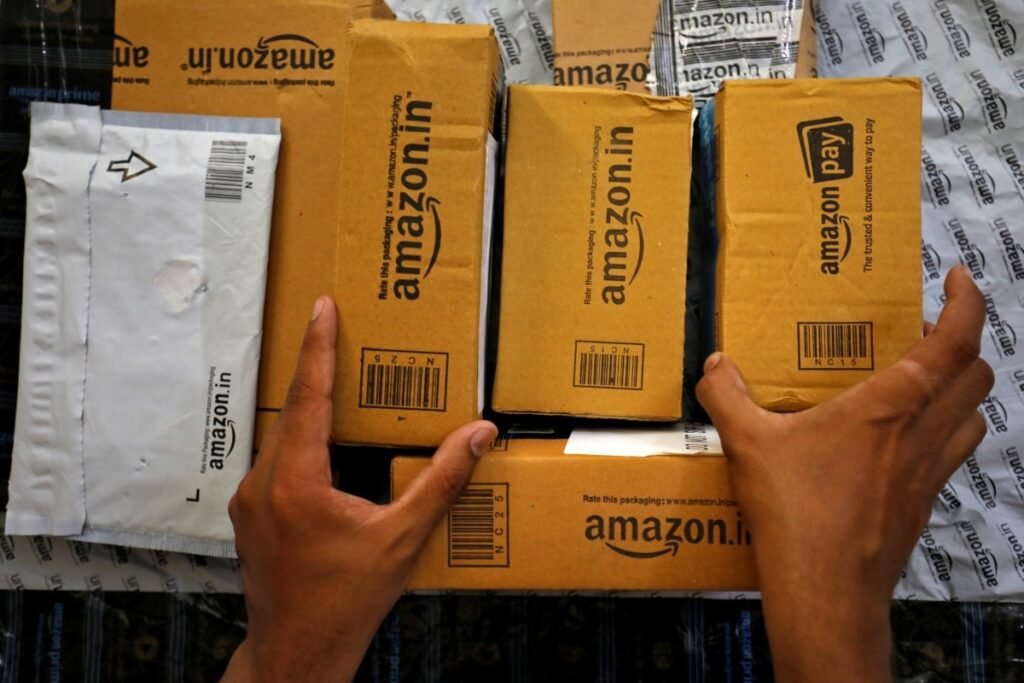The issue of plastic waste management has become one of the biggest environmental challenges of our time, and India is no exception. Among its most problematic forms, single-use plastics (SUPs)—items designed to be discarded after just one use—have drawn the attention of policymakers, environmentalists, and citizens alike. In the national capital, the Delhi government has taken significant steps to enforce the ban on such plastics, recognizing their harmful impact on the environment, human health, and the city’s waste management infrastructure.
The latest development in this ongoing battle against plastic pollution is the Delhi government’s decision to engage with major e-commerce companies and food delivery platforms. Officials confirmed that leading firms like Zomato, Swiggy, Amazon, and Flipkart will soon be part of a roundtable discussion aimed at ensuring compliance with the ban on SUP items. These companies play a critical role in Delhi’s economy and lifestyle, and the government believes that their involvement is essential to making the campaign successful.
In this article, we will take a detailed look at Delhi’s SUP ban, why e-commerce firms are central to its success, the challenges of implementation, the alternatives being explored, and what the future might look like for the capital city’s waste management strategy.
Understanding Single-Use Plastics and Their Impact
Single-use plastics are items that are intended for one-time use before being discarded. These include common items like plastic straws, cutlery, plates, stirrers, carry bags, candy sticks, and polystyrene-based products such as cups and trays. The issue with SUPs lies not just in their short lifecycle but also in their non-biodegradable nature, which makes them persist in the environment for decades, even centuries.
In Delhi alone, an estimated 1,060 tonnes of plastic waste are generated daily, with single-use plastics forming around 5.6 percent of this waste stream. That may sound small, but in real terms, it amounts to over 56 tonnes of SUP waste each day. These items often clog drains, pollute water bodies, and break down into microplastics, which then enter the food chain and threaten human health.
The environmental damage caused by SUPs is compounded by their low economic value. Unlike certain types of plastics that can be recycled profitably, SUPs are often too contaminated or too low-quality to justify recycling. This means they usually end up in landfills or, worse, littering public spaces.
The Legal Framework: India’s Nationwide Ban
Recognizing the severity of the issue, the Union Environment Ministry issued a notification on August 12, 2021, prohibiting the manufacture, import, stocking, distribution, sale, and use of identified SUP commodities. This came into effect on July 1, 2022, marking a nationwide effort to curb plastic waste.
The list of banned items is extensive and includes earbuds with plastic sticks, balloon sticks, plastic flags, candy sticks, ice-cream sticks, thermocol decorations, plates, cups, glasses, forks, spoons, knives, straws, trays, wrapping films around sweets boxes, invitation cards, cigarette packets, plastic or PVC banners under 100 microns, and stirrers.
This was a landmark step for India, aligning with global sustainability goals and similar bans in countries such as the UK, Canada, and several EU nations. However, while the law is clear, enforcement remains a challenge—especially in cities like Delhi, where the population density, consumption habits, and sheer scale of plastic use create a complex scenario.
Delhi’s Approach: Enforcement and Awareness
The Delhi government, through the Revenue Department and the Delhi Pollution Control Committee (DPCC), has set up multiple enforcement teams to monitor compliance. Currently, 33 teams from the Revenue Department and 15 teams from the DPCC are actively working to ensure that manufacturers, vendors, and distributors follow the rules.
Yet, enforcement alone cannot drive long-term change. This is why the Delhi government has also emphasized awareness campaigns and alternative solutions. One such initiative is the “Plastic Vikalp Mela” held at Thyagraj Stadium. The mela serves as a platform to showcase substitutes for SUPs, from biodegradable cutlery to cloth and jute bags, offering businesses and consumers viable alternatives.
The mela culminates on July 3, followed by the much-anticipated roundtable with e-commerce firms. This sequence highlights the government’s balanced approach—first showing alternatives, then engaging stakeholders, and finally moving towards stricter enforcement.
Why E-commerce and Food Delivery Firms Are Central
Delhi’s consumption landscape has dramatically changed in the past decade, especially after the Covid-19 pandemic. With people relying more than ever on online platforms for food, groceries, and daily essentials, companies like Amazon, Flipkart, Zomato, and Swiggy have become lifelines for urban living.
However, this convenience comes at an environmental cost. Packaging waste from e-commerce deliveries and food orders contributes significantly to Delhi’s SUP load. Items like bubble wrap, plastic wrappers, cutlery, and thermocol trays are frequently used, often ending up in landfills within hours of delivery.
By directly engaging with these companies, the Delhi government is tackling the problem at its source. If these platforms adopt eco-friendly packaging, reduce reliance on plastics, and promote consumer awareness, the impact could be transformative.
Interestingly, some platforms have already initiated steps towards sustainability. For instance, “plastic-neutral deliveries”—where companies offset their plastic usage by funding plastic recycling or collection projects—are being piloted. While promising, experts argue that such initiatives need scaling and integration with government efforts to make a real difference.
The Role of Stakeholders
The roundtable discussion chaired by Environment Minister Gopal Rai is expected to bring together multiple stakeholders beyond e-commerce companies. These include:
- Market associations, representing local traders and shopkeepers.
- Self-help groups, often women-led, producing eco-friendly alternatives like cloth bags.
- Industrial associations, which can drive large-scale manufacturing of substitutes.
- Legal experts, ensuring clarity on regulatory frameworks.
- MCD and DPCC enforcement teams, ensuring coordination on the ground.
Such multi-stakeholder collaboration is essential. The plastic ban is not merely an environmental issue but also an economic and social one. Traders worry about increased costs, consumers fear inconvenience, and industries face the challenge of retooling production lines. Bringing all voices to the table increases the likelihood of finding balanced, practical solutions.
Challenges in Implementation
While the intent of the ban is commendable, several hurdles remain:
- Consumer Behavior – People are accustomed to cheap, lightweight plastic items. Changing habits requires both education and incentives.
- Cost of Alternatives – Eco-friendly materials often cost more, making businesses hesitant to adopt them without subsidies or bulk supply chains.
- Informal Sector Dependence – Many small vendors rely on cheap plastics for survival. Enforcement must be sensitive to their economic realities.
- Enforcement Gaps – Despite multiple teams, monitoring every shop, vendor, and online delivery package is a logistical challenge.
- Availability of Substitutes – For some items, like food packaging for liquids, viable alternatives are still limited or under development.
Unless these challenges are addressed, there is a risk of non-compliance or even black-market sales of SUPs.
Opportunities in Alternatives
The flip side is that the SUP ban also opens up significant opportunities in the green economy. Startups and entrepreneurs can develop cost-effective, scalable alternatives like:
- Biodegradable cutlery made from cornstarch, sugarcane bagasse, or bamboo.
- Cloth and jute bags for retail use.
- Recyclable paper packaging for e-commerce.
- Compostable food containers for deliveries.
Government-backed initiatives like the Plastic Vikalp Mela create visibility for such products. If e-commerce giants integrate these alternatives into their supply chains, demand will increase, driving economies of scale and reducing costs.
The Way Forward
The Delhi government’s move to engage e-commerce firms marks a turning point in India’s battle against plastic waste. Instead of limiting enforcement to traditional markets, the strategy now extends to the digital economy, which plays an outsized role in consumption patterns.
For long-term success, the following steps are crucial:
- Collaboration, not confrontation – Governments and companies must work together, balancing environmental goals with business realities.
- Consumer awareness campaigns – Encouraging citizens to refuse plastic cutlery or opt for “no plastic packaging” options during online orders.
- Incentives for alternatives – Subsidies, tax breaks, or bulk procurement programs for eco-friendly manufacturers.
- Strict penalties for violators – Once alternatives are in place, strict action must be taken against persistent violators to ensure fairness.
- Continuous innovation – Research into sustainable materials must be encouraged through academic and industry partnerships.
Global Lessons for Delhi
Looking abroad, there are valuable lessons Delhi can adopt. For example:
- European Union: Member states have banned several SUP items and invested heavily in circular economy models, promoting recycling and reuse.
- Canada: Rolled out nationwide bans while simultaneously investing in green startups.
- Rwanda: A pioneer in Africa, where strict enforcement and strong community involvement have made the country virtually plastic-free.
These examples show that strong political will, stakeholder engagement, and public participation can make a plastic ban not just a law, but a lived reality.
Conclusion
The Delhi government’s decision to engage with e-commerce companies on the single-use plastic ban is both timely and necessary. With Delhi generating over a thousand tonnes of plastic waste daily, bold measures are needed to safeguard the city’s environment, health, and future. By bringing on board major firms like Zomato, Swiggy, Amazon, and Flipkart, the government acknowledges that sustainability cannot be achieved in isolation—it requires every sector to play its part.
While challenges remain, the combination of strict enforcement, awareness campaigns, availability of alternatives, and corporate collaboration can turn the tide. Delhi has the opportunity to emerge as a leader among Indian cities in tackling plastic waste, setting an example for others to follow.
The road ahead is not easy, but with collective willpower and innovative thinking, a plastic-free Delhi is within reach.

